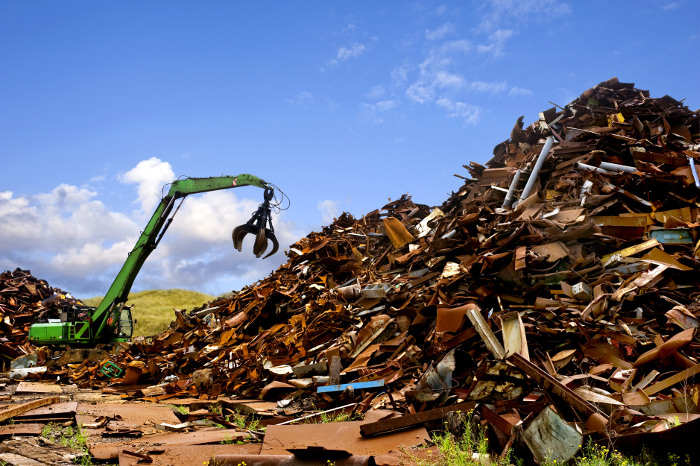5 Things You’re Doing Wrong When Scrapping Your Metal
 When you have a scrap metal recycling program in place at your company, you’re already taking steps to improve your overhead. But what if your program isn’t bringing in everything it can or is leaving your company open to risk? There are many simple mistakes that are easy to make that many companies make. Here’s five of the biggest ones and how to avoid them.
When you have a scrap metal recycling program in place at your company, you’re already taking steps to improve your overhead. But what if your program isn’t bringing in everything it can or is leaving your company open to risk? There are many simple mistakes that are easy to make that many companies make. Here’s five of the biggest ones and how to avoid them.
1) You’re not sorting and preparing your metals
Mixed scrap metal gets the lowest possible price. Sorting your metals by type, such as aluminum, copper, brass, steel, stainless steel and similar categories ensures you’ll get the best possible price for each metal group rather than the lowest possible for mixed scrap. Preparing your metals by removing any contamination, paint, insulation or other coating means that your metal is graded into a better category, because you’re saving the recycling company from the expense of storing the bulkier scrap with the coating intact and then having to prepare it themselves.
2) You’re not protecting your scrap metal from theft
You’ve probably heard horror stories where buildings under construction have been raided for the copper wire or air conditioning units for their copper lines, but not protecting your scrap metal can leave you open to the same kind of losses. Simply keeping your scrap in a secure area or padlocking the scrap bins can help reduce the threat of scrap metal theft.
3) You’re not dealing with a reputable scrap metal yard
A disreputable yard may have inaccurate scales that will show a lower weight than the scrap you’re selling. They may also offer lower prices than a reputable yard, often on reasons that won’t stand up when you know the industry. They also tend to have virtually no customer service available to take care of problems.
4) You’re not selling to a specialized yard
A general scrap yard doesn’t know the specifics of your business, so they can’t help you optimize your scrap metal profits. By working with a specialized yard, you’re going to receive an offer on your scrap based on a more specific metal type, so if you work with an expensive iron alloy, for example, you can expect a price that reflects that expense.
5) You’re not tracking your scrap metal sales
Selling your scrap metal is considered income, and not recording it means that you don’t have a verification of how much income you received. This is especially important if you’re facing an IRS audit or investigation, so make sure you keep good records and report it on your taxes.
By keeping these mistakes in mind, you can improve your scrap metal recycling program to reach maximum profit while minimizing your risk. If you need help getting your program off the ground or improving your existing program, please feel free to contact us.

Comments are closed